The game of depending on ever-expanding debt and exports for growth is over.
When the global financial pie is expanding, there's plenty of swag for everyone, so competition is limited and cooperation is rewarded. If we step back, what is most striking about China's emergence in the global economy over the past 30 years is how little actual conflict between global players this generated.
The reason is obvious: China's rapid development and integration into the global economy created vast markets and profits for every major global player: the U.S., the European Union, Japan, southeast Asia, Russia, the petro-states and commodity states.
The conflicts were by and large mere jostling and squabbling; even the supposedly important issues such as Chinese purchases of U.S. Treasury bonds, and China's subsequent trimming of its Treasury holdings, had little discernible effect on global trade or profits.
To fully understand why this period of cooperation is ending and competition is heating up, we need to understand two key dynamics of global capitalism. As I noted in
Is This the Terminal Phase of Global Capitalism 1.0? (February 8, 2013), the return on capital invested in material production systemically declines as urbanization raises wages, externalized costs (pollution and resource depletion) come home to roost and the central state raises taxes to pay for rising social welfare and income security programs.
The solution is to move production to locales with low wages, no environmental protection and low taxes. This is precisely what China (and other emerging economies in Asia such as Indonesia and Vietnam) offered the developed economies.
The other solution was to move capital in the domestic home economies from marginally profitable production to highly profitable financialization: securitizing home mortgages, originating derivatives, leveraging debt and all the other tricks of the financialization trade.
Together, these two shifts of capital quadrupled global wealth in a mere 17 years:assets rose from $51 trillion in 1990 to nearly $200 trillion in 2007:
Global stock market capitalization rose from $11 trillion in 1990 to $65 trillion in 2007. This was largely the result of massive profits generated by shifting production overseas and from the financialization of the domestic economies--what I call the neocolonial-neofeudal model.
The E.U., Neofeudalism and the Neocolonial-Financialization Model (May 24, 2012)
As a result, stock market valuations broke away from the real economy of goods and services reflected in the GDP (gross domestic product):
The neocolonial-neofeudal model of financialization is fundamentally an exploitative parasitic skimming of wealth, and so it has limits--limits that follow an S-curve:
The most important feature of the chart of global assets is that it has clearly topped out in an S-curve. After a rapid ascent, asset growth has gone nowhere for years; even worse, the riskiness of these asset classes is leaking through the propaganda.
It is not coincidental that shadow banking assets expanded at an explosive pace.
Shadow banking has also topped out. (Although it is beyond the scope of this essay, it should be noted that China has a vast and generally misunderstood shadow banking system that includes private wealth instruments and local government development deals. Though data is difficult to come by, it appears China's shadow banking system has also topped out.)
What hasn't topped out is debt, both sovereign and private, which has reached unsustainable heights. Does anyone seriously believe these trends are sustainable?
Here is U.S. Federal debt, which is clearly following an exponential curve:
This brings us to the second dynamic of global capitalism: when the expansion ends, competition heats up as sovereign nations and global corporations alike battle for a slice of stagnant markets and shrinking profits. Wages in China have risen by 40% or more in the past few years, and the central state has started taxing individuals and businesses. Off-the-chart smog in Beijing and other cities (the most visible externalized costs) is forcing the Chinese government to tax and spend on basic environmental regulation and cleanup.
As a result, profits are harder to come by and production is leaving for cheaper climes.
In other words, the easy-money party is over for both China and financialization. Now that these profit centers have matured, global capital is struggling, not just to find a profitable, safe home but to keep from imploding as the risks of financialization are becoming more difficult to mask.
We now see why nations are resorting to outright currency devaluations: their ability to service rapidly rising debt is decaying along with global profits. The competition for global capital is heating up, as every major player faces a Hobson's Choice: they can print or create debt-money to fund their debt and risk inflation strangling their economy, or they can raise interest rates to attract global capital. This increases the costs of their debt service, crimping further borrowing.
Either way, the game of depending on ever-expanding debt and exports for growth is over.
This global competition is playing out on multiple interlocking levels. For example, since the chief export of America is dollars, the U.S. can create as much money as it pleases and export inflation to everyone accepting dollars for payment. Given that China is also creating vast quantities of debt-money itself, inflation in China is unavoidable.
Between January 2005 and January 2013, Chinese bank deposits have soared by a whopping $11 trillion, rising from $4 trillion to $15 trillion! We have no idea what the real Chinese GDP number is but this expansion alone is anywhere between 200 and 300% of the real GDP as it stands now.
China knows that it is this close from setting off another inflationary conflagration, with the help of Bernanke, Draghi, Carney et al. of course, just as it did back in 2011. And it will be runaway Chinese inflation, once more like in the spring and summer of 2011, that will be the gating factor on the current bout of monetary injection lunacy that has gripped the developed world's central banks.
Everyone needs to create more debt to keep their debt pile from collapsing, and sell their surplus production to someone else to generate the cash needed to service the debt. Everyone is running the same debt-dependent, export-dependent game except the U.S., which by default is able to trade paper money for real goods and services because the other players have no other market of size to sell to.
The organs of propaganda are claiming global growth is still rapid and sustainable, but this growth is of the diminishing-return variety, based entirely on ballooning debt that is malinvested or squandered on current consumption.
We can anticipate global players will pursue ever more desperate measures to keep their debt-ships afloat, and this zero-sum competition will generate more conflicts. We can also anticipate that these conflicts will become increasingly unpredictable, as the global economy's phantom assets and unpayable debts have reached unprecedented levels.
Things are falling apart--that is obvious. But why are they falling apart? The reasons are complex and global. Our economy and society have structural problems that cannot be solved by adding debt to debt. We are becoming poorer, not just from financial over-reach, but from fundamental forces that are not easy to identify or understand. We will cover the five core reasons why things are falling apart:
 1. Debt and financialization
1. Debt and financialization
2. Crony capitalism and the elimination of accountability
3. Diminishing returns
4. Centralization
5. Technological, financial and demographic changes in our economy
Complex systems weakened by diminishing returns collapse under their own weight and are replaced by systems that are simpler, faster and affordable. If we cling to the old ways, our system will disintegrate. If we want sustainable prosperity rather than collapse, we must embrace a new model that is Decentralized, Adaptive, Transparent and Accountable (DATA).
We are not powerless. Not accepting responsibility and being powerless are two sides of the same coin: once we accept responsibility, we become powerful.
Kindle edition: $9.95 print edition: $24 on Amazon.com
To receive a 20% discount on the print edition: $19.20 (retail $24), follow the link, open a Createspace account and enter discount code SJRGPLAB. (This is the only way I can offer a discount.)
| Thank you, Stephen N. ($50 gift card), for yet another staggeringly generous contribution to this site -- I am greatly honored by your steadfast support and readership. | | Thank you, Robert B. ($10), for yet another splendidly generous contribution to this site --I am greatly honored by your ongoing support and readership. |
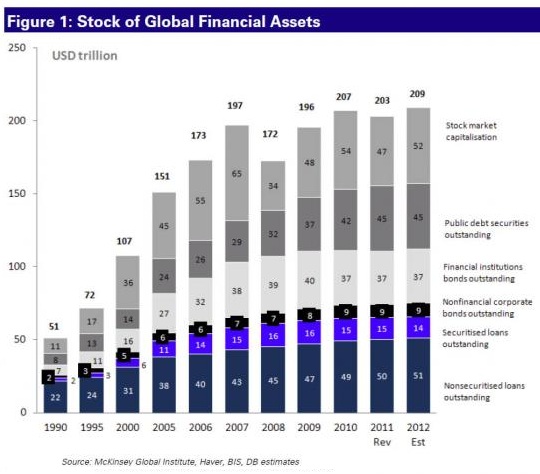
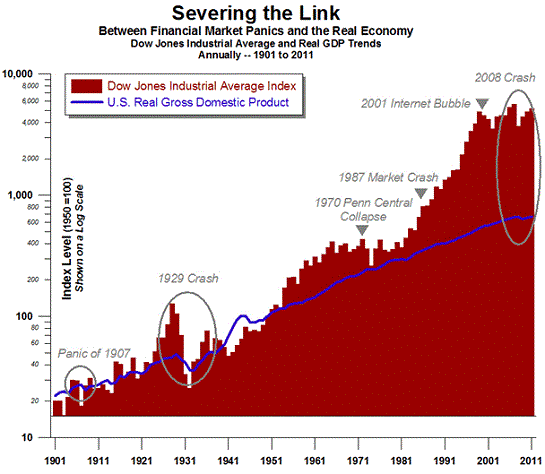
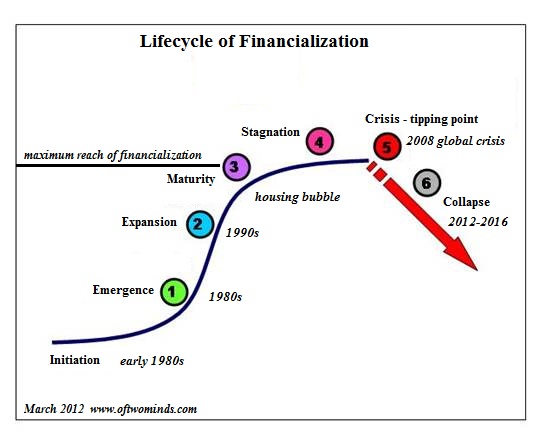
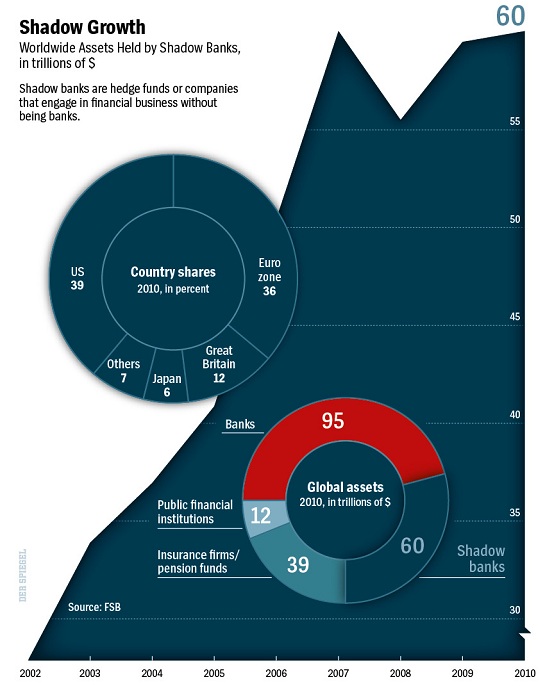
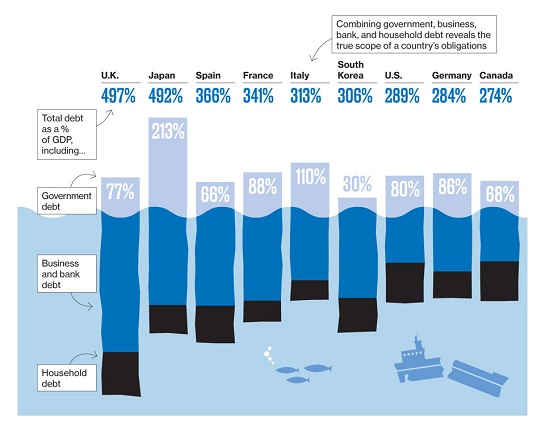
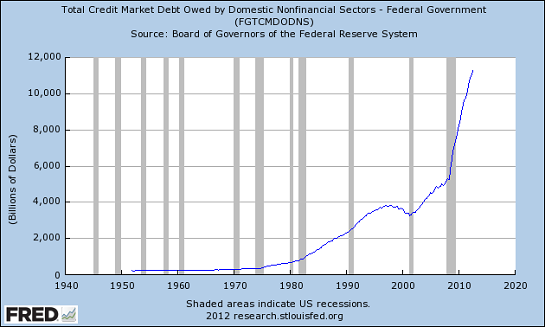
 1. Debt and financialization
1. Debt and financialization


























